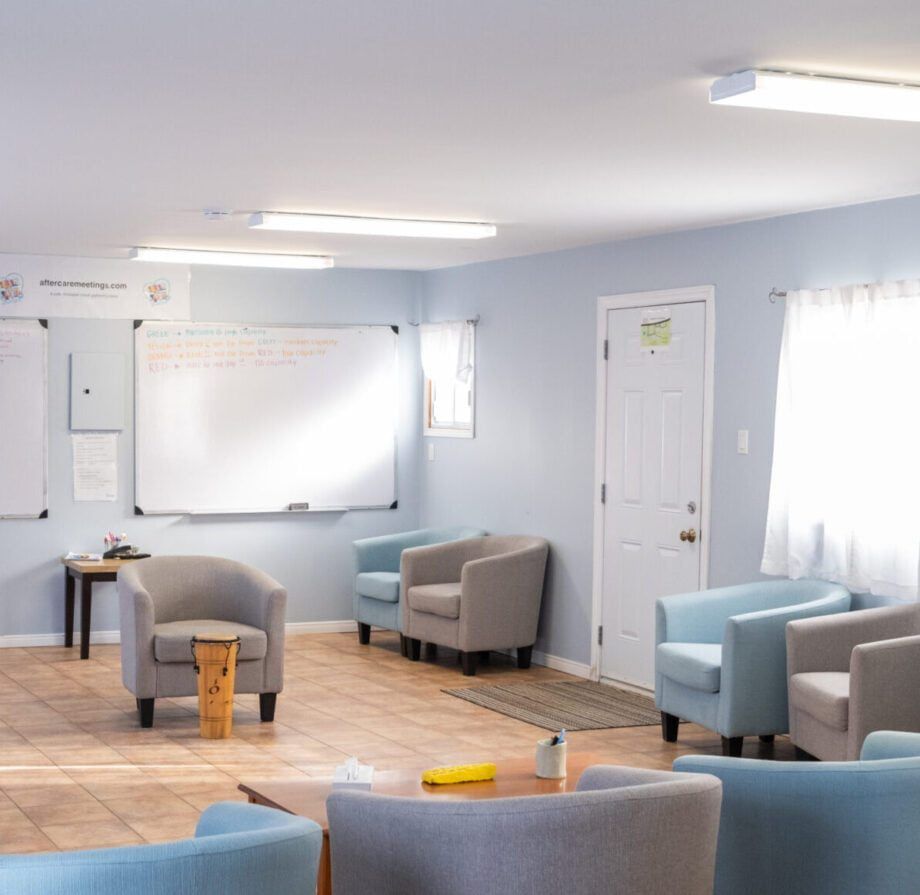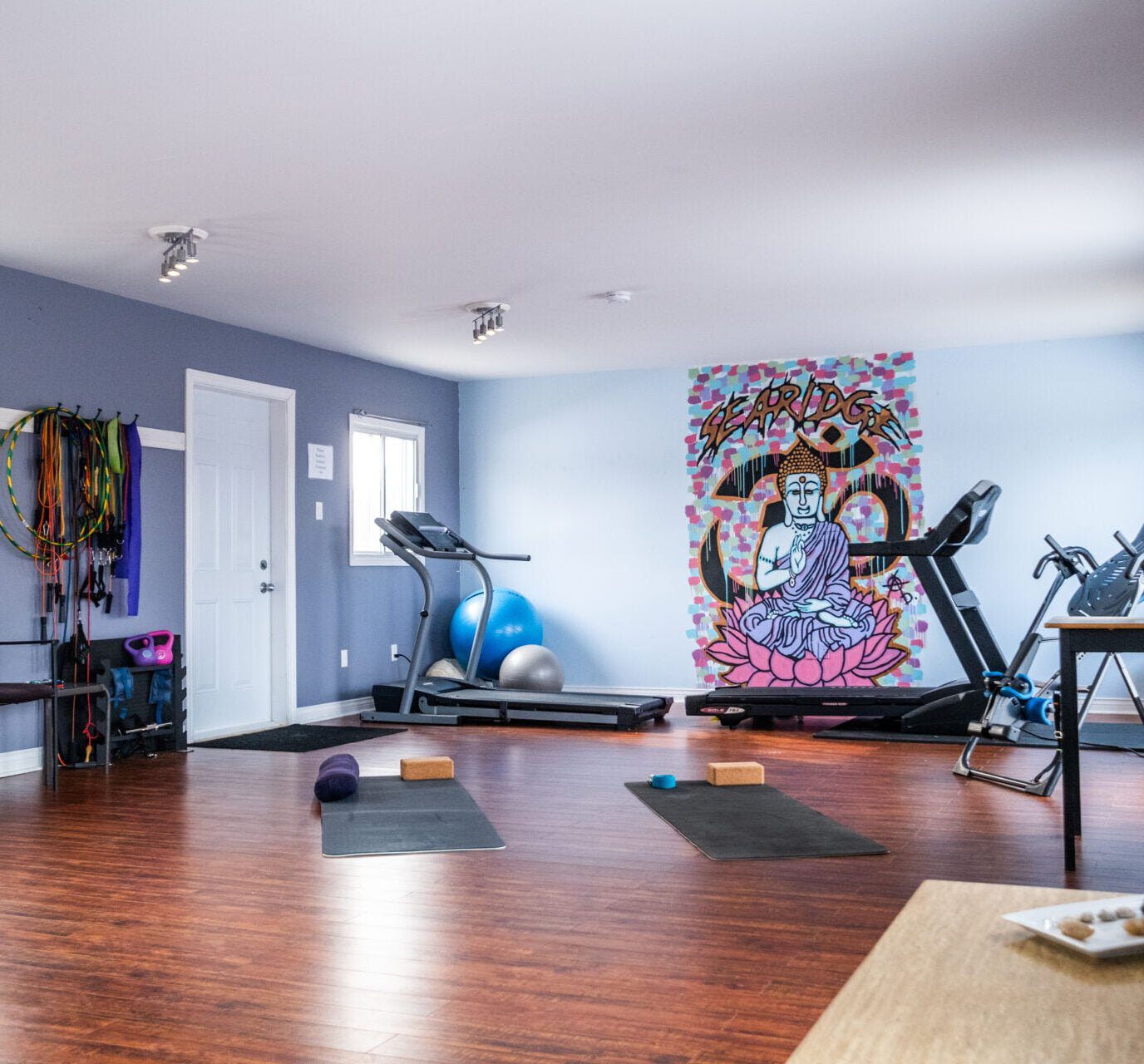
At Searidge Alcohol Rehab we take pride in maintaining a limit of 12 residents in our alcohol addiction treatment program, which ensures that each receives the most effective and individualized treatment we can offer.
We provide a supportive but challenging environment in which our residents are guided through the time and work needed to rediscover and develop their potential. Our comprehensive approach to alcohol addiction treatment involves psychotherapy, pharmacotherapy and alternative therapies, preparing residents for a life of recovery with the support of our aftercare program.
Our primary therapy is psychological – medical. All our therapists/counselors are University trained in Psychology and Addictions at accredited US and Canadian Universities. Cognitive Behavioral Therapy (CBT), Rational Emotive Behaviour Therapy (REBT), Dialectical Behavioral Therapy (DBT), and Psychodynamic Psychotherapy approaches combine to give our residents a whole new set of life skills perfectly suited for a new life free of addictive and self-destructive behavior.
We strive to treat the psychological and emotional factors contributing to each individual’s addiction, as well as the addictive behavior itself.
Time and experience have shown us that alcohol use disorder (AUD) has root causes that run deep, so deep that it is easy to misunderstand the connection between alcohol use disorders and deeper mental health issues.
CBT is a type of psychotherapy for helping our residents develop a deeper understanding of who they are and what drives them. Much like the word indicates CBT sessions increase cognition or awareness of a person’s behaviors and challenges negative thought patterns to alter unwanted behavior.
REBT is a therapeutic method that targets self-destructive and irrational beliefs that we all have had rise from time to time. In REBT sessions a therapist and resident will bring these fears, self-doubts, and self-destructive emotions into the light and then discuss the why, where, and what can we do about those emotions.
DBT is based on CBT, however it focuses more on long-term growth in the form of acceptance. In a DBT session the therapist works with the resident to understand that, while their emotions are valid, there must be a way for them to change those unhealthy coping behaviors into more healthy ones.
Psychodynamic therapy explores not only the resident’s past experiences and learned behaviors, it also relies heavily on the relationship between the therapist and the resident to create a bridge of trust, understanding, and cooperation between the past, the present, and the desired future.
We strive for complete sobriety without medication, but we recognize this can be challenging for some. When necessary, we use medications to help residents manage cravings and other needs. Therapy is tailored to make sure medications are used safely and appropriately.
Our doctors and therapists are experienced in managing these medications and adjust our therapy to enhance their effectiveness. Our doctors can prescribe Naltrexone, Methadone, Suboxone, and other helpful medications to control cravings.
Our consulting psychiatrist can diagnose and treat psychological disorders like depression, anxiety, OCD, PTSD, bipolar disorder, and ADD.
Searidge offers treatment for these disorders along with alcohol addiction. This combined approach is crucial, as many people with psychological issues may turn to drugs or alcohol for relief.
Searidge Alcohol Rehab addresses general health needs for residents during their stay. A resident nurse is available on-site, and our Addictions Doctors and Psychiatrist meet with residents as needed.
For those entering treatment, detox occurs on-site under medical supervision. Our doctor and nurse ensure residents are safe and comfortable throughout their withdrawal. Our detox physicians are licensed by Health Canada to prescribe suboxone, methadone, and other medications for withdrawal.
Naltrexone is an oral medication that prevents people suffering from alcoholism from feeling euphoria or a “high” from drinking alcohol. This eliminates the motivation to drink.
The oral form of naltrexone, which is just as effective for the treatment of alcohol addiction.
Oral medication, which produces an unpleasant reaction when one drinks a little amount of alcohol.
Oral medication that reduces cravings and overall desire to drink.
Searidge offers alternative healing practices alongside traditional therapy. These methods are important for overall healing. Our range of alternative therapies provides residents with effective techniques to reduce stress and improve focus during recovery at Searidge, and to support a life free from addiction.
The diversity in our program ensures that every resident will be included and discover activities that appeal to them, no matter what level of physical ability or stage in alcohol addiction recovery. Our alternative healing therapies include:
Anyone who has lived in or visited Nova Scotia will tell you that the heart of every gathering and every home here is the kitchen, and our community kitchen, open 24/7 is no exception. One of the casualties of an alcohol use disorder that is often overlooked is the relationship with food. When alcohol hijacks our pleasure centers some of the simpler things like enjoying a meal take a back seat, and that is when malnutrition can set in. This is why at Searidge we place a high value on rebuilding a healthy relationship with food, and it all starts in the community kitchen.
To help our kitchen team develop meal plans that are more than just delicious we look to our dietary nutritionist Professor Louise Thibault, Professor of Human Nutrition and Dietetics at McGill University, a student of Orthomolecular medicine. Her skills help to inform which diets and supplements should be incorporated to help individuals recover, assist in controlling cravings, and restore neurological health. And of course, we work with residents to accommodate all dietary restriction preferences and needs.

We strongly believe that our residents cannot focus solely on introspection and psychotherapy all day. They also should relearn the joys that an active sober life offers, and get fitter in the process. Recovery is at its core a neurological healing process, and achieving a lasting and sustained recovery means getting stronger both mentally and physically.
As it is for all types of healing, exercising, and getting more fit supports better healing and recovery, and reduces stress and anxiety in a healthy natural way. We have an excellent recreation program that is easily adaptable to an individual’s age and fitness level.
We have a beautiful pool and access to a fully equipped exercise room, as well as an off-site gym. Certain types of exercise, such as weight training are particularly useful in treating depression and anxiety. Our recovery fitness program helps patients focus on the types of exercises that can better deliver on physical and mental health goals.

Searidge Alcohol Rehab values our connection with residents even after rehab. Recovery requires ongoing support, which is why our Aftercare program is among the best in the country. Meetings are held over Zoom, allowing our graduates to join nearly every day.
We organize a weekly women’s only meeting to create a safe space for our female graduates to discuss their unique challenges and share successes.
Our Aftercare facilitators offer help and understand the journeys faced by our graduates, often having experienced it themselves. We also host Sobriety Reunion Weekend getaways with events and shows, as well as occasional Refresher Courses at Searidge.
Community strength helps our graduates stay sober. Residents start attending meetings before leaving rehab, connecting with alumni to build a lasting support system.
Our goal is for you to remain healthy and free without needing to return. We are committed to helping you achieve your rehab and life goals.
We're here for you
Recovery is just a phone call away. We’re here for you 24 hours a day, 7 days a week. Call 888-777-9972